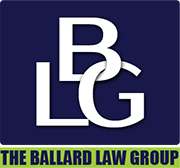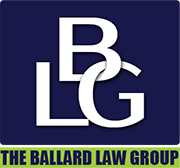Many people assume because they are getting a fresh financial start and most if not all of their debts are discharged in bankruptcy that they are not permitted to own many assets for a few years afterward. This is a commonly held misconception – any property that has been deemed exempt under Georgia’s bankruptcy laws you may continue to own as you did prior to filing bankruptcy. Additionally, anything you obtain after the filing of a bankruptcy petition you can generally keep.
Georgia Bankruptcy Exemptions
Georgia bankruptcy law details the property (referred to as exemptions) that you can protect from your creditors at the time you fine a bankruptcy. There are exemption categories for different types of property, and a dollar amount for each that serves as the limit up to which you may claim an exemption. To keep any property not covered by an exemption, the debtor must usually pay the value of the property.
Exemption limits apply to whatever equity you may have in property. You may elect to keep some property if:
- It is secured by a loan,
- You are current on payments, and
- The equity is covered in your exemptions
if you continue making payments during your bankruptcy. If the equity is not sufficiently covered under your exemptions it may be liquidated and you will be entitled to the value of your exemption through a cash payment.
The main categories of exemptions are:
- Homestead – real property used as a residence up to $21,500, and up to $5,000 of unused homestead exemption capital may be applied to any property;
- Insurance – annuities, disability or health benefits to $250 per month, group insurance, life insurance if needed for support and owned by someone to whom you are dependent;
- Alimony and child support;
- Pensions – non-profit employee pensions, ERISA benefits, and public employees;
- Personal property – clothes, household goods, furniture, animals, and appliances up to $200 per item and $3,500 total, burial plots, jewelry to $500, health aids, lost future earnings needed for support, motor vehicles to $1,000, personal injury awards to $7,500, and wrongful death recoveries needed for support;
- Wages – minimum of 75% earned but unpaid wages, more may be authorized for low-income individuals;
- Public Benefits – crime victim compensation, local public assistance, aid to the blind, disabled or elderly persons, social security, unemployment benefits, veterans benefits, and workers compensation.
What You Cannot Keep
Though there are many things you may continue to own, there are a few types of assets and property you may not be allowed to keep after filing bankruptcy. If, within 180 days from the occurrence of your bankruptcy, you receive benefits from a life insurance policy, an inheritance, or come into a property settlement, any money or property received could be ordered paid to your creditors to satisfy your debts if it is not exempt.
Get Help with Your Georgia Bankruptcy
If you are filing bankruptcy, the rules, regulations, exemptions, and exceptions to the exemptions can be baffling and stress-inducing. If find yourself in this, contact to the experienced Georgia bankruptcy attorneys at The Ballard Law Group. We are here to help you understand how to navigate bankruptcy proceedings in the most advantageous way possible and retain as much of your property as you can. We offer a free bankruptcy consultation to evaluate your situation and help you both understand how bankruptcy rules may impact you and how to use them to your advantage. Contact us today by calling (404) 800-9939.


